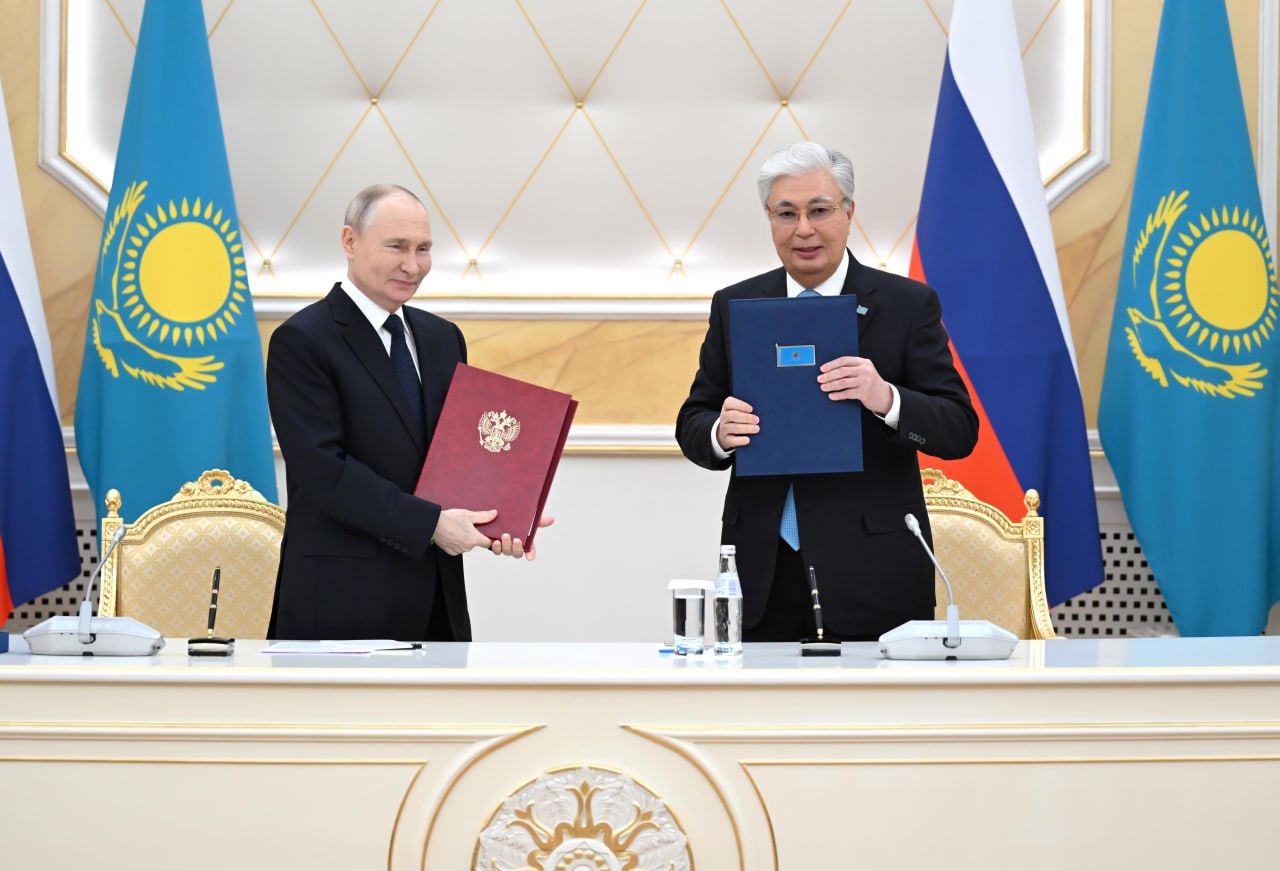BAKU, Azerbaijan, November 28. Kazakhstan and Russia have long enjoyed a strategic partnership, characterized by deep mutual dependence and extensive cooperation across various sectors. With the longest land border in the world linking the two countries, their historical, economic, cultural, and political ties form the foundation of their close relationship. Currently, Russian President Vladimir Putin is on a state visit to Kazakhstan - his second this year - a testament to the ongoing strength and importance of the bilateral relationship.
Growing economic cooperation
The trade and economic interaction between Kazakhstan and Russia is gaining significant momentum. During the latest talks between the two leaders, they set an ambitious goal to reach a mutual trade turnover of $30 billion. This target is well within reach, as current trade volumes already exceed $28 billion, representing 20% of Kazakhstan’s total foreign trade.
Russian investments in Kazakhstan have been robust, with accumulated investments from Russian companies in the Kazakh economy reaching $13 billion. At present, there are 23,000 Russian companies operating in Kazakhstan, with 4,000 of these having been established just in the last year. In 2023 alone, Russian companies invested more than $3 billion in Kazakhstan, a sum matched by Kazakhstan’s investments in Russia.
Joint efforts between the two countries span various sectors, including energy, industry, transport, logistics, and agriculture. To date, over 90 projects with a combined value of more than $18 billion have been implemented, with 49 more projects underway. As President Kassym-Jomart Tokayev noted in a bilateral meeting, these ventures have created more than 22,000 new jobs and hold the potential to generate an additional 20,000 jobs in the near future.
Energy sector cooperation
The energy sector remains one of the most dynamic areas of Kazakhstan-Russia cooperation, marked by significant achievements. Through the Caspian Pipeline Consortium, which relies on Russian territory and infrastructure, more than 80% of Kazakhstan's oil exports reach global markets. The two countries are also jointly exploring and developing hydrocarbon fields, processing energy resources, and expanding their pipeline systems.
One of the most notable projects is the development of the "Kalamkas-sea - Khazar" offshore field, in collaboration with Russia’s Lukoil, with investments totaling more than $6 billion. In the petrochemical sector, Russian companies have partnered with Kazakhstan to build one of the largest polypropylene production facilities in Central Asia, which began operations in 2022. Another major project involves the construction of a polyethylene plant, set to produce 1.2 million tons annually, and a butadiene facility with a production capacity of 340,000 tons per year, in collaboration with Tatneft.
Furthermore, in the gas sector, Kazakhstan and Russia are making significant strides. For the first time, Russian gas transit to Uzbekistan is taking place via Kazakhstan. A transit agreement has also been signed with Gazprom to transport Russian gas to Kyrgyzstan, while long-term gas supply agreements for Kazakhstan are under active consideration.
Strengthening energy security and green initiatives
In addition to traditional energy projects, Kazakhstan and Russia are prioritizing the development of a green, sustainable economy. Kazakhstan is actively investing in renewable energy sources, and Russian partners have already helped launch projects with a total capacity of 370 MW. Future plans include the generation of an additional gigawatt of clean energy, a significant step towards reducing the region’s carbon footprint.
Russian state corporation Rosatom is also playing a key role in Kazakhstan’s nuclear energy sector. It is providing technical expertise and support for the development of Kazakhstan’s uranium industry and nuclear fuel cycle. As President Putin emphasized, Rosatom is well-positioned to take on large-scale projects in Kazakhstan, including the construction of a nuclear power plant - an initiative that was recently approved by a referendum in Kazakhstan.
Transport and logistics integration
The two countries have also focused on enhancing their transport and logistics infrastructure, with ambitious plans for the future. Kazakhstan aims to overhaul its rail network by repairing 11,000 kilometers of tracks and building more than 5,000 kilometers of new railroads by 2030. One of the key initiatives is the development of a modern multimodal transport network that will connect Kazakhstan, Russia, and China.
A notable success in this area is the joint construction of a new transport and logistics center in Seljatino, Russia, which is integrated into the broader China-Kazakhstan-Russia transit corridor. These logistics hubs are pivotal to facilitating the smooth flow of goods across Eurasia, enhancing trade and economic integration in the region.
Partnership poised for the future
Kazakhstan and Russia’s cooperation has reached unprecedented levels, touching virtually every aspect of their bilateral relationship. The political dialogue continues to evolve, trade and economic cooperation is expanding, and cultural ties are flourishing. The two countries have recently signed a series of intergovernmental agreements, including a Comprehensive Economic Cooperation Program for 2021-2025 and an Action Plan for 2024-2026.
The ongoing development of Kazakhstan-Russia relations will undoubtedly provide significant momentum for both countries' economies and strengthen their role in shaping the future of Central Asia and beyond. The recent agreements, alongside the ambitious projects outlined during President Putin’s visit, signal that this alliance will continue to grow and evolve, with both nations committed to further deepening their strategic partnership for years to come.







